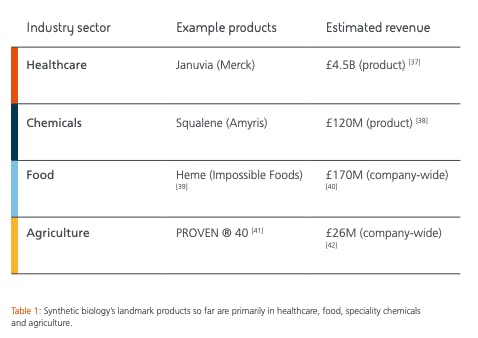This report explores the state of the field today and how it measures up to original expectations, as well as its implications for defence and the sustainable fuel market.
- Synthetic biology has attained landmark technical achievements but is yet to truly meet initial aspirations in a commercial sense.
- Investment and hype is high, but synthetic biology unicorn startups are still searching for a killer application.
- Having never completely overcome scaling challenges, synthetic biology-derived fuels constitute an infinitesimally small share of the current transport fuel market. We estimate this at <0.002% (vs. 3% for the larger biofuels segment).
- In the coming decade, synthetic biology-derived sustainable fuels are unlikely to make a significant dent in the market but may increase their reach to approx. 0.03% by 2030 (vs. 12% for the larger biofuels segment).
- More optimistic estimates could push their market share to closer to 20% in the longer term. However, this assumes that the demand for jet fuel remains static and the success of today’s leading synthetic biology players, such as LanzaTech, continues to snowball.
Our Approach
Making sense of today’s complex technology landscape demands extensive quantitative and qualitative data that is meticulously gathered and organised by experts in the field.
For this study, Outsmart Insight engaged a team of leading postdocs and PhDs at the forefront of synthetic biology and biotechnology. With unique methodology, Outsmart Insight ensures:
- High-quality research covering academic and industry sources
- Depth and breadth in coverage to limit cognitive biases
- Diverse information sources to avoid blind spots
What is the promise of synthetic biology?
Two decades in, synthetic biology has yet to truly meet initial aspirations
Humankind has been trying to harness biological systems for our own purposes for millennia. Everything from medicines to foods, fuels, chemicals and materials are synthesised, grown, extracted and spun from nature’s basic building blocks.
The fundamentals of molecular biology
- At the centre of biology is the ability to read, write, reprogram and use DNA (genes).
- Gene expression is how cellular machinery reads DNA and transcribes it into a similar ‘messenger molecule’ RNA (mRNA), which is translated into proteins.


